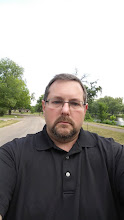
Heidelberg One:
I just finished reading Richard Mouw’s book Calvinism in the Las Vegas Airport. Mouw is concerned with the stark nature of Calvinism, and the lack of personal, experiential engagement with society. Not that Calvinism is sterile or that it lacks experience, but Calvinists tend to be more concerned with an academic style correctness over personal relationship. I found the book interesting, challenging, and largely instructive for me.
Mouw presses us to do what a Welsh preacher advised a couple of hundred years ago:
He urged his fellow Calvinist preachers to try to be a little more “careless” in interpreting the Bible. Not that he was recommending “the carelessness of levity,” he quickly explained, “but rather the carelessness of faith.” Many a Calvinist colleague, he observed, “will spend an hour’s exegesis on the word ‘world’; it will almost take his breath away to utter ‘all’; he will circumnavigate land and sea to avoid meeting ‘everyone’.” But the fact is, he went on, the Bible uses the words “all” and “world” in a fairly straightforward manner. “Trust more in the Bible, I implore you,” he concluded.
Mouw points out that eventually, as we read the Bible and ponder God’s ways, we will get to the point Paul did. We will break forth in song as he did in Romans 11. Eventually we have nothing to do or say but break forth with the greatness of the Lord.
Mouw closes the book with the remarkable statement from the first question and answer of the Heidelberg Catechism, often referred to as Heidelberg One.
My only comfort in life and death is that I am not my own.
I am a little uncomfortable with what Mouw calls his eclecticism, but what I might call a universalism tendency. I find him humble though, and he really brings out the humility of Calvinist theology. I believe that God brought me to Calvinism because it humbles the Christian. Lord knows I need humility. How much more humble can one get than “I am not my own!”

No comments:
Post a Comment